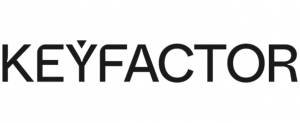Quantum News Briefs June 29: Keyfactor announces updates with post-quantum readiness & Internet of Things (IoT) security; DIGITAL and NGen Partner to launch $30 million in new quantum projects; IonQ CTO: Korea is latecomer in quantum technology, but not too late + MORE

Quantum News Briefs June 29: Keyfactor announces updates with post-quantum readiness & Internet of Things (IoT) security; DIGITAL and NGen Partner to launch $30 million in new quantum projects; IonQ CTO: Korea is latecomer in quantum technology, but not too late + MORE.
Keyfactor announces updates with post-quantum readiness & Internet of Things (IoT) security
 Keyfactor, the identity-first security solution for modern enterprises, the identity-first security solution for modern enterprises, has announced the launch of two innovative product updates, EJBCA 8.0 and SignServer 6.0. The updates bring significant advancements in post-quantum readiness and Internet of Things (IoT) security as organizations seek safeguards against the rising possibility of cyberattacks brought on by developments in and growth of both technologies. Quantum News Briefs summarizes.
Keyfactor, the identity-first security solution for modern enterprises, the identity-first security solution for modern enterprises, has announced the launch of two innovative product updates, EJBCA 8.0 and SignServer 6.0. The updates bring significant advancements in post-quantum readiness and Internet of Things (IoT) security as organizations seek safeguards against the rising possibility of cyberattacks brought on by developments in and growth of both technologies. Quantum News Briefs summarizes.
“Today, many organizations aren’t prepared for the transition to post-quantum cryptography. Whether they are ready or not, the new algorithms and standards are coming soon, and PKI will need to adapt accordingly,” said Ted Shorter, Chief Technology Officer, Keyfactor. “As a leader in PKI and cryptography management, we have put ourselves in front of this coming wave, and our mission is to lead our customers through their post-quantum transition. We’re committed to providing the tools and capabilities they need to establish and maintain digital trust in their ecosystem as their security needs evolve, including in their transition to post-quantum security and securing emerging IoT devices by design.”
New features with EJBCA 8.0 include:
-
- Post-Quantum Preparation: Support to start testing and evaluating new quantum-safe candidate algorithms for certificate issuance and certificate signing, including Dilithium and Falcon. The update allows companies to better prepare for the inevitable transition to post-quantum cryptography ahead of the National Institute of Standards and Technology (NIST) finalizing standardization in 2024.
- New IoT Security Capabilities: A new modular extension to EJBCA, plus support for the Matter Smart Home standard, extends the powerful capabilities already offered by Keyfactor today by making it even easier for manufacturers to deploy public key infrastructure (PKI) on the factory floor, at the edge, or in operational technology (OT) environments, while supporting industry requirements.
- Agile SSH Certificate Issuance: A new SSH Certificate Authority (CA) type that helps organizations move towards a more agile and secure approach of establishing trusted connections with machines. Specifically, the update makes it possible for organizations to issue host and user SSH certificates, enhance security with the ability to issue short-lived SSH certificates, and replace static SSH keys and passwords that are hard to manage and vulnerable to theft or misuse.
Click here to read the news announcement in-entirety.
DIGITAL and NGen Partner to launch $30 million in new quantum projects
 NGen, the industry-led organization leading Canada’s Global Innovation Cluster for Advanced Manufacturing and DIGITAL, Canada’s Global Innovation Cluster for digital technologies, have partnered to launch $30 million in new projects to drive the commercialization of quantum technologies. Quantum News Briefs summarizes the announcement.
NGen, the industry-led organization leading Canada’s Global Innovation Cluster for Advanced Manufacturing and DIGITAL, Canada’s Global Innovation Cluster for digital technologies, have partnered to launch $30 million in new projects to drive the commercialization of quantum technologies. Quantum News Briefs summarizes the announcement.
The clusters will build on Canada’s National Quantum Strategy to deliver industry-led commercialization projects that use quantum technologies to solve industrial and societal challenges. The clusters will leverage their cross-country networks to deploy Canada’s world-leading R&D leadership to deliver strategic industrial advantages through the use of emerging quantum technologies.
Under the National Quantum Strategy, DIGITAL and NGen will receive $14 million in total to advance the commercialization of products, services and technologies based on advances in quantum science. The clusters aim to leverage the NQS funding to attract more than $30 million in total investments and will focus their projects in three key categories of quantum technologies including:
- Quantum Sensors – photonics and transducers, chip-based quantum systems.
- Quantum Networks – quantum communications, quantum key distribution, quantum internet.
- Quantum Computing – quantum software, cryptography, algorithms, information processing, hybrid applications, hardware, and middleware.
In the coming weeks the clusters will provide more information about the mechanics of the program including priority sectors for applications, a formal call for proposals, timelines for applications and eligibility criteria for projects.
DIGITAL and NGen invite individuals and organizations who would like to receive updates or learn more about the opportunity to sign up for notifications by completing the form at quantumadvantage.ngen.ca.
Click here to read announcement in-entirety.
IonQ CTO: Korea is latecomer in quantum technology, but not too late
 Korea was late to join the quantum computing race according to a June 28 article in The Korea Times. Quantum News Briefs summarizes the Korea Times article by Baek Byung-yeul.
Korea was late to join the quantum computing race according to a June 28 article in The Korea Times. Quantum News Briefs summarizes the Korea Times article by Baek Byung-yeul.
However, the sector, which is expected to be a game-changer like the internet and AI, is still in the early stages of development and the country can still get ahead of the curve if it gets the jump on applications that will be used in the next five to 10 years, the co-founder U.S.-based quantum computing company IonQ said recently.
“Korea was definitely a late starter to the basic R&D of quantum computing technology. The United States and Europe started to begin their R&D in the mid-90s while Korea started seven or eight years ago,” Jungsang Kim, co-founder and chief technology officer of IonQ, told The Korea Times during an interview in Seoul.
The CEO cited Hyundai Motor as an example of a Korean company that is making good use of quantum computing. Since last year, IonQ and Hyundai Motor have been collaborating on using quantum computing to design autonomous driving systems more accurately and develop batteries for electric vehicles (EVs).In an era of ever-increasing data processing speeds, quantum computing’s ability to process unimaginable amounts of data could lead to endless applications.” Click here to read article in-entirety.
Researchers to test limits of quantum technologies with nanoparticles in space
 The University of Warwick in England and the Universities of Swansea and Strathclyde have received over $319,000 from the UK Space Agency to expand research into space technologies utilizing quantum physics and nanoparticles — two features with the potential to drastically reduce the size of satellites while lowering development and launch costs. Quantum News Briefs summarizes June 21 article in CourthouseNews.
The University of Warwick in England and the Universities of Swansea and Strathclyde have received over $319,000 from the UK Space Agency to expand research into space technologies utilizing quantum physics and nanoparticles — two features with the potential to drastically reduce the size of satellites while lowering development and launch costs. Quantum News Briefs summarizes June 21 article in CourthouseNews.
James Bateman of the University of Swansea physics department, in a statement. “Our team is comprised of experts in nanosatellites, quantum sensing and experimental optomechanics, and this project will help to make levitated optomechanical sensors a reality.”
Though seemingly complicated, nanoparticles are simply particles that are a thousand times larger than an atom and a thousand times smaller than a grain of sand. What is more complex, however, is how previous research involving levitated optomechanics — a field that deals with the motion of tiny particles held and measured in free space by laser light — has indicated that nanoparticles can exhibit behaviors governed by the laws of quantum mechanics, a theory that describes how atoms and subatomic particles interact.
For the first time, scientists will now attempt to apply nanoparticle research to modern technologies through “Levitated Optomechanical Technologies in Space” or “LOTIS,” an 18-month project with an ambitious goal of utilizing nanoparticles as sensors for space-born devices. Such devices would be small, lightweight and capable of fitting shoebox-sized nanosatellites known as CubeSats, offering scientists a variety of exploratory applications, whether it be for spaceflight or geophysics. Click here to read article in-entirety.
Sandra K. Helsel, Ph.D. has been researching and reporting on frontier technologies since 1990. She has her Ph.D. from the University of Arizona.





















